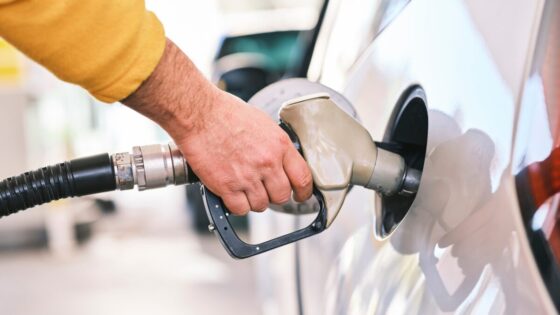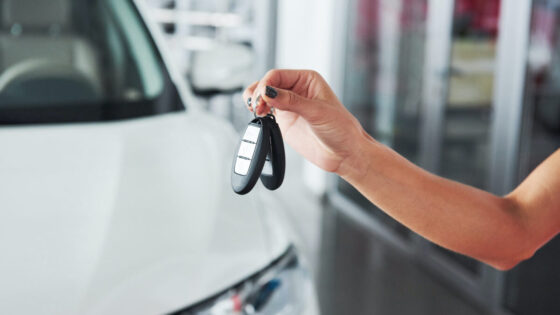Leasing vs Buying a Car: Pros and Cons for American Consumers


When it comes to acquiring a car, American consumers have two main options: leasing or buying. Both options have their own set of advantages and disadvantages, and choosing the right one depends on a variety of factors. In this article, we will explore the pros and cons of leasing and buying a car, and provide guidance on how to make the best decision for your needs.
Pros of Leasing a Car
Lower monthly payments compared to buying
One of the most significant advantages of leasing a car is lower monthly payments compared to buying. When you lease, you only pay for the car’s depreciation during the lease period, not the entire cost of the vehicle. This results in lower monthly payments, making it an attractive option for those with a tight budget.
No need for a large down payment
Another benefit of leasing is that there is no need for a large down payment. In some cases, you may not need a down payment at all. This is because the leasing company uses the car itself as collateral, which reduces the need for a large down payment.
Ability to drive a new car every few years
Leasing allows you to drive a new car every few years, which is a significant advantage for those who enjoy having the latest models and features. This is because most leases last for two to three years, after which you can return the car and lease a new one.
In a recent tweet, a car enthusiast shared their positive experience of leasing a car. Leasing is becoming an increasingly popular option for American consumers, as it allows them to drive a newer car with lower monthly payments than buying. However, there are pros and cons to both leasing and buying a car that consumers should consider. Let’s take a closer look at some of them.
Lower repair and maintenance costs
Leased cars are typically covered by the manufacturer’s warranty, which means that repair and maintenance costs are often lower compared to owning a car. This is because the warranty covers most repairs, and the leasing company may also provide additional services, such as roadside assistance and maintenance plans.
Bullet points:
Here are some additional bullet points to further highlight the benefits of leasing a car:
- Leasing a car means you’re not responsible for selling or trading in the vehicle at the end of the lease term, as the leasing company handles this process.
- Since you’re only paying for the car’s depreciation during the lease period, you may be able to afford a higher-end or more luxurious car than you would be able to buy outright.
- Leasing a car also means you can avoid the hassle of selling or trading in a car that may have depreciated significantly in value, potentially leaving you with negative equity.
- For those who use a car for business purposes, leasing can often provide tax benefits, as the monthly lease payments and certain associated costs may be deductible as business expenses.
Cons of Leasing a Car
Mileage restrictions and penalties for exceeding them
One of the significant drawbacks of leasing is the mileage restrictions. Leasing contracts often have limits on the number of miles you can drive each year, typically between 10,000 and 15,000 miles. If you exceed these limits, you may face penalties, which can be costly.
- No ownership or equity in the car
Another disadvantage of leasing is that you do not own the car. This means that you have no equity in the vehicle, and you cannot sell it or use it as a trade-in when the lease is up.
- Costly fees and charges for excessive wear and tear
Leasing companies often charge fees for excessive wear and tear on the vehicle. This can include anything from dents and scratches to worn-out tires and interior damage. These fees can add up quickly, making leasing less attractive for those who are rough on their vehicles.
- Not cost-effective for long-term use
Leasing is not cost-effective for long-term use. This is because you will always have a car payment, and you will never own the vehicle. If you plan to keep the car for more than a few years, buying may be a better option.
There are also some potential downsides. Here are some key factors to consider before deciding whether to lease or buy:
- Leasing a car typically comes with mileage restrictions, which can be a disadvantage for those who frequently drive long distances or have long daily commutes. Exceeding the mileage limit can result in costly penalties.
- Leasing a car means you won’t have any ownership or equity in the vehicle, which may be a concern for some consumers who prefer to own the cars they drive.
- When leasing a car, you may be subject to additional fees and charges for excessive wear and tear, which can add up over time.
- While leasing can be a good option for those who like to drive a new car every few years, it may not be cost-effective for those who plan to use a car for the long term. In the long run, owning a car outright may be more affordable.
Pros of Buying a Car:
Owning a car outright has its advantages, the most significant being that you’ll have equity in the vehicle. That means that after you’ve paid off the loan, you’ll be left with a valuable asset. Additionally, buying a car means you won’t have to worry about mileage restrictions, and you’ll be free to modify or personalize your car however you want. Buying a car is also cost-effective in the long-term as you’ll own the car outright once the loan is paid off.
Bullet points:
- Owning a car outright gives you the freedom to sell it at any time, allowing you to recoup some of your investment.
- You can drive as much as you want without having to worry about paying mileage penalties or adhering to restrictive lease agreements.
- When you buy a car, you have the option to purchase an extended warranty or maintenance plan, which can provide added peace of mind and protection against unexpected repair costs.
- You can customize your car to your heart’s content, whether that means upgrading the stereo system, adding a roof rack, or painting it a funky color.
- When you’re ready to buy a new car, you can trade in your old one and use its value as a down payment, which can help lower your monthly payments on the new vehicle.
Cons of Buying a Car:
The downside of buying a car is that you’ll face higher monthly payments than leasing. You’ll also need a large down payment to secure the loan, and you’ll be responsible for the car’s repair and maintenance costs as it ages. Additionally, cars depreciate over time, which means that your car’s resale value will decrease over time, leading to concerns about the car’s long-term value.
Bullet points:
- Higher monthly payments compared to leasing can be a strain on your budget.
- A large down payment is typically required when buying a car, which may be difficult to come up with for some consumers.
- As the car ages, repair and maintenance costs can increase, potentially adding up to thousands of dollars over the car’s lifetime.
- Depreciation is an important consideration when buying a car, as the car’s value will decrease over time. This can lead to concerns about the car’s long-term value and how much you’ll be able to sell it for in the future.
- Personalizing your car with modifications can be costly, as you’ll be responsible for covering the expenses out of pocket.
Ultimately, the decision to lease or buy a car depends on your individual needs and financial situation. As @DiiiVERGENT’s experience shows, leasing may be a good option for some consumers, but it’s important to weigh the pros and cons and carefully consider all of the costs involved.
To help you make an informed decision between buying and leasing a car, here is a comparison table that highlights the key differences between the two options.
| Feature | Buying a Car | Leasing a Car |
| Monthly Payments | Higher, due to financing costs | Lower, due to depreciation |
| Down Payment | Typically required | Not always required |
| Ownership | You own the car | You do not own the car |
| Mileage Restrictions | No mileage limits | Limits and penalties for excess |
| Modifications | Allowed | Not allowed |
| Repair and Maintenance Costs | Higher as car ages | Lower due to warranty coverage |
| Depreciation | You bear the cost of depreciation | Leasing company bears cost |
| Resale Value | You decide when to sell | No resale value for lessee |
| Long-term Cost-Effectiveness | Cost-effective over time | Not cost-effective over time |
In recent years, American consumers have increasingly considered leasing a used car as an alternative to buying one outright. This option allows for lower monthly payments and the ability to drive a newer model without the commitment of a long-term purchase. For those interested in exploring this option further, a helpful resource is available on cars311.com, which provides a step-by-step guide on how to lease a used car.
According to a recent article on Cars311, “Finance vs. Lease for Car Ownership,” the decision to finance or lease a car ultimately comes down to personal preferences and financial circumstances. The article notes that financing a car typically involves higher monthly payments, but allows for ownership of the vehicle and potential long-term savings. On the other hand, leasing a car often results in lower monthly payments, but may come with mileage restrictions and end-of-lease costs.
FAQ
Leasing a car can be cheaper than buying in terms of monthly payments, but it is not necessarily cheaper in the long run.
Yes, you can negotiate the terms of a lease, including the monthly payment, down payment, and mileage limits.
No, modifications are not allowed on a leased car.
You will be charged a penalty fee for each mile over the limit, which can add up quickly.
Yes, you can typically buy the car at the end of the lease term by paying the residual value of the car.
It may be easier to get approved for a lease with bad credit, but the monthly payments will likely be higher. Buying may be a better option in the long run.
Yes, but there may be penalties and fees for ending a lease early, so it is important to read the terms of the lease carefully.
The residual value of a car is the estimated value of the car at the end of the lease term, which is used to calculate the monthly lease payments.


